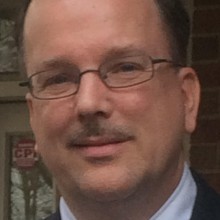The Growing Complexity of Transmission System Planning
Less than a decade ago, the functions performed by Transmission Planning Engineers were accommodative to separate studies using straightforward modeling practices and methods with limited complexity. These analyses included identifying reliability projects necessary for compliance with NERC TPL-001 Standard Requirements, identifying transmission needs for serial generator interconnection requests, identifying transmission projects needed for accommodating a new load/point of delivery for a municipality or cooperative, and identifying transmission needs for long term transmission service requests. Today, transmission planners must address a much more complex integrated system through analyzing a transmission system that needs to accommodate large economic development loads, variable energy resources dispersed across the system, storage that needs to be studied as a load and source, new transient stability concerns to analyze with inverter-based resources, and a cluster study process where one common long lead time network upgrade can delay interconnection for several resources. To address and manage this complexity, new practices, methods, and tools are needed that can address multiple scenarios and determine transmission needs in a holistic versus piecemeal manner.

Samuel Roberts II
General Manager, Transmission Planning and Operations Strategy, Duke Energy on February 2, 2024 at 10:15 AM in EB2 1231
Dewey Samuel Roberts II (Sammy) is the General Manager – Transmission Planning and Operations Strategy at Duke Energy with the primary responsibility for the development of mid-term and long-term strategy for Transmission Planning and Operations. This responsibility includes mid-term and long-term planning to support reliable transmission system transformation needed to enable coal plant retirements and to integrate resource plan resources.
Sammy graduated from North Carolina State University in 1987 with a Bachelor of Science Degree in Electrical Engineering. He also obtained a Master of Science Degree in Electrical Engineering from North Carolina State University in 1990 and a Master of Business Administration Degree from North Carolina State University in 2004. He is a registered Professional Engineer in the state of North Carolina, and he was a Certified System Operator by the North American Electric Reliability Corporation through 2021.
Sammy has provided presentations on solar integration to Commissions, the North American Transmission Forum, SERC, and at IEEE conferences.
This lecture series features exciting and dynamic visiting and virtual speakers from across the range of ECE disciplines. Take some time every Friday morning to be inspired by these great scientists and engineers before heading into the weekend!
